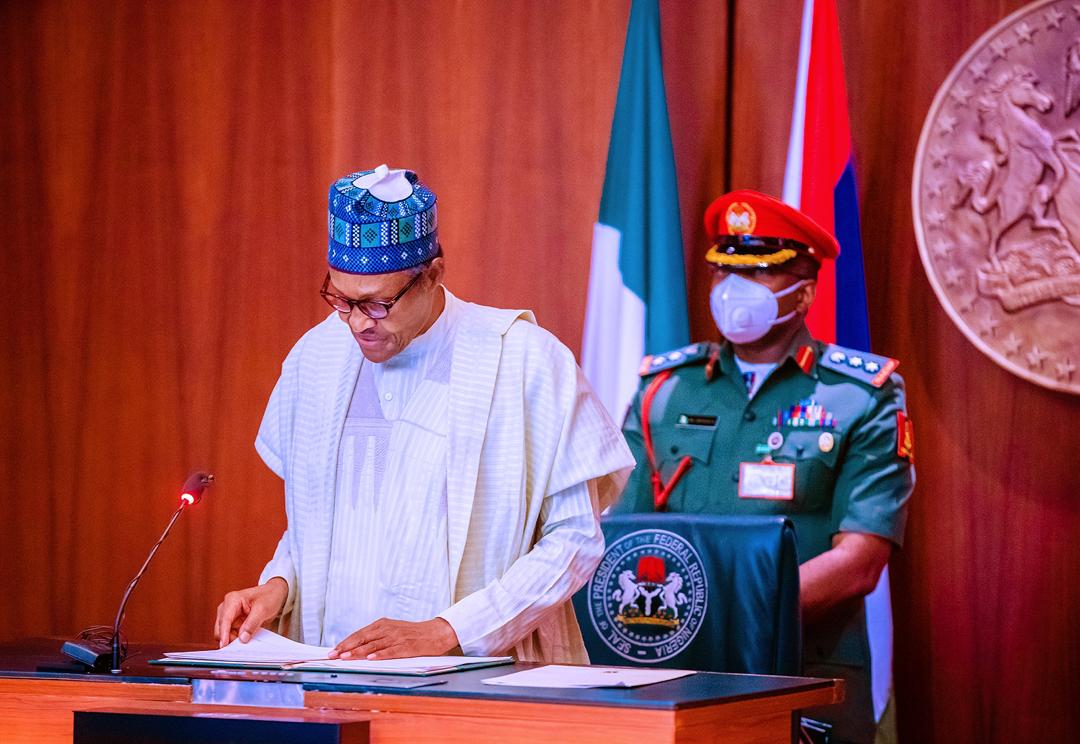Who, precisely, is President Muhammadu Buhari? Or more appropriately, what is Buhari? The two questions are important for Nigeria today, and for the future, because political leaders are judged not only by their personal traits and style of leadership, that is, who they are but also what they represent to the country and the people they lead. The two feed into and reinforce each other, of course, since what a leader represents is in part a consequence of who they are.
For many Nigerians today, there is a simple answer to the question ‘who is Buhari’? Millions of Nigerians believe the outlandish claim that the President is a Sudanese clone, or that he is ‘Mr Go Slow’, for his snail-like style of leadership, or that we must distinguish between two very different versions of the same man: Buhari, the candidate (Daura Buhari) and the president (Abuja Buhari).
- Judge orders Lalong, Attorney General to settle 2-year judges’ benefit
- Tackling youth unemployment in Nigeria
But what is Buhari? In my view, President Buhari represents a confluence of two cultural and personal influences that give his government its peculiar character. The first is Buhari’s absolutist claim to superior moral purity over his peers. No Nigerian leader, alive or dead, has put so much political store in their own sense of moral purity and superiority over others than Buhari.
For 16 years, the President’s entire campaign was based on a single sentence: ‘I have more integrity than everyone else, therefore, I am the most qualified to lead’. And all through those long campaign years, he rammed this claim through the public mind again and again until it acquired the social power of folklore or myth. Now as President, he wears it as a badge. It is what Buhari sees in himself and the only thing he invites others to see in him.
Worse still, it is the only thing Buhari sees in others as well. This is why the President has hardly ever accepted that any Nigerian leader before him, or any aspiring leader for that matter, has ever done anything right. Where the late President Yar’adua openly stated that former President Obasanjo did his best, even at a time when saying so was unpopular, Buhari’s view is that all previous leaders ‘destroyed’ the country. Everyone but himself is morally tainted.
Unfortunately for Nigeria, the president’s claim to moral superiority over his peers intersects with a deeply entrenched cultural attitude, particularly in northern Nigeria, that sees virtue in a lack of means. I don’t know how it arose, but in northern Nigeria, poverty is regarded as a virtue in and by itself. ‘I am poorer than you, therefore God is automatically on my side, not on yours’. This is nonsense, of course, but it has helped ensure Buhari’s firm grip on northern political imagination at the moment.
Yet, the claim rests on shaky grounds. The man was a military head of state, one who, in fact, came to power through a coup. But a coup that upturns the will of a people freely expressed in an election, however imperfect the election might have been, is the worst form of corruption, ever. He who steals the will steals everything.
Even more, unfortunately, this weird conception of virtue also intersects with a limited ability to manage people, money and ideas, perhaps the three most important skills a president actually needs to govern. The results are now bare for all to see. After six years in Aso Rock, Buhari has not solved a single one of Nigeria’s major problems, which is the real job description for presidents: to solve the major problems bedevilling the society they lead.
In his barely three years as president, to give just one example, Yar’adua solved two, if not three, of Nigeria’s big problems. His Presidential Amnesty Programme brought conflict and militancy in the Niger Delta to a meaningful end. He also ended Nigeria’s cycle of illegitimate elections, the worst of them being the very one that brought him to power. But he promised to end the cycle, and he did. The reforms he started in our electoral system has no parallel in Nigerian history, and they remain robust to this day. His salary increases for workers consolidated the expansion of the middle-class that had started under his two immediate predecessors.
No one in Nigeria has benefited from these things than Buhari himself. Without the sanity in the electoral system, he would not be president today. Without the peace in the Niger Delta, Nigeria would be completely ungovernable now. Without a larger middle-class to cushion the harsh effects of the terrible economic policies of the last five years, the whole country would have been in #EndSARS mode.
But what has Buhari done so far to consolidate and build upon these? Your guess is as good as mine. However, to make sure, I will spell mine: little. There is not much to say for Buhari’s leadership about unemployment, or mass poverty, or decayed infrastructure, or rising fuel and food prices, or corruption, and absolutely not about Boko Haram and insecurity.
Yet, the president continues to be insulated by his feeling of moral superiority over everyone else. ‘It is not my fault if everyone does not do their jobs as well as I am doing mine’, the president seems to be saying in response to all genuine cries for attention. Rome is burning to the ground, but all that Nero sees is the purity of his own inactions.

 Join Daily Trust WhatsApp Community For Quick Access To News and Happenings Around You.
Join Daily Trust WhatsApp Community For Quick Access To News and Happenings Around You.


